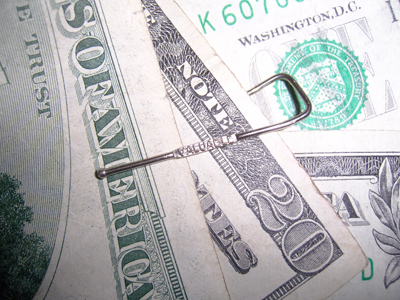All Nonfiction
- Bullying
- Books
- Academic
- Author Interviews
- Celebrity interviews
- College Articles
- College Essays
- Educator of the Year
- Heroes
- Interviews
- Memoir
- Personal Experience
- Sports
- Travel & Culture
All Opinions
- Bullying
- Current Events / Politics
- Discrimination
- Drugs / Alcohol / Smoking
- Entertainment / Celebrities
- Environment
- Love / Relationships
- Movies / Music / TV
- Pop Culture / Trends
- School / College
- Social Issues / Civics
- Spirituality / Religion
- Sports / Hobbies
All Hot Topics
- Bullying
- Community Service
- Environment
- Health
- Letters to the Editor
- Pride & Prejudice
- What Matters
- Back
Summer Guide
- Program Links
- Program Reviews
- Back
College Guide
- College Links
- College Reviews
- College Essays
- College Articles
- Back
Money and the Devil
The evilness behind money goes back through history, maintaining an unwavering ideal: money corrupts. Religion in particular targets money and associates it with the Devil. In Vatican City, the Pope openly denounced money, claiming it was the “root of all evil”. Among all of the sins, the Pope proclaimed that the love of money is the most emphasized. Money as a motivation is a sin. In this perspective, the concept of money and all that it embodies are unjust: simply, money violates people’s rights to be virtuous—it corrupts.
And yet, money is a concept created by man. The Pope asserts that “money also sickens our thoughts; it even sickens our faith and makes it choose another path”. The very currency which we rely on is based on faith. Our paper dollars or yens or Euros have no value if we do not believe in their worth. Is this long-standing confidence a sin? The Pope claimed that you cannot serve both God and money, polarizing wealth from religion. While people can believe in a God, they can also believe in themselves—thus, they are not agnostics or atheists; they devote faith to the religion of man. Why is it that using money to attach a value to something so loathed? Money shows to the rest of the world a universally accepted worth.
The Pope claims that pride is the language of the devil. Without pride, what is man? If great thinkers had no conviction in what they believed, there would be no innovation. Injustice is defined as the violation of another’s rights. The Pope implies that our right is to serve God, which requires the capitulation of desire and greed, and thus money. Defining our “rights” is difficult. The Pope’s definition specifies only a God, but not a religion. I accede to serving God—the god of my religion.
Money, or at least the concept of money, has guided man throughout civilization. The growth of wealth has signified our own advancement and accomplishment. Wealth, vanity and pride—we must lose these things in order to strive “for justice, godliness, faith, love”. So are we to lose all wants? Is it not a human right to achieve and surpass others based on the merit of skill and talent?
We already idolize money. The world depends on money to live and flourish, and we spend it every day, indirectly or directly. So are we all associates of the Devil? Victims to temptation? Have we committed an irrevocable injustice by desiring money in order purchase wants instead of needs?
When the Pope asks us to surrender our money and desire, he is asking us to surrender our will to eat, sleep and live. The concept of surpassing others in wealth and desiring to consume luxuries does not corrupt. Money does not corrupt; it is one of our rights. When man thinks to steal money from another, his mind is corrupt. He takes the self-worth of another individual and attempts to claim it as his own, even though it will never be. He will not feel important, vain or proud, characteristics condemned by the Pope. So if he never feels important and vain, does the thief not abide by the Pope’s characterization of evil? Faith and pride are tied together. A thief has no faith in his self-worth and must steal—because he lacks pride. And yet, the Pope purports that we must strive for faith, but not pride.
Is it an injustice to desire money? Or to renounce it? The Pope has inadvertently labeled money with the Devil and scorned greed as an egregious sin. The Pope must forsake himself for the sake of God and condemn any person earning money for the sake of earning money. That is his justice. I must have my individuality and conviction. That is my right. That is my justice.

Similar Articles
JOIN THE DISCUSSION
This article has 0 comments.
